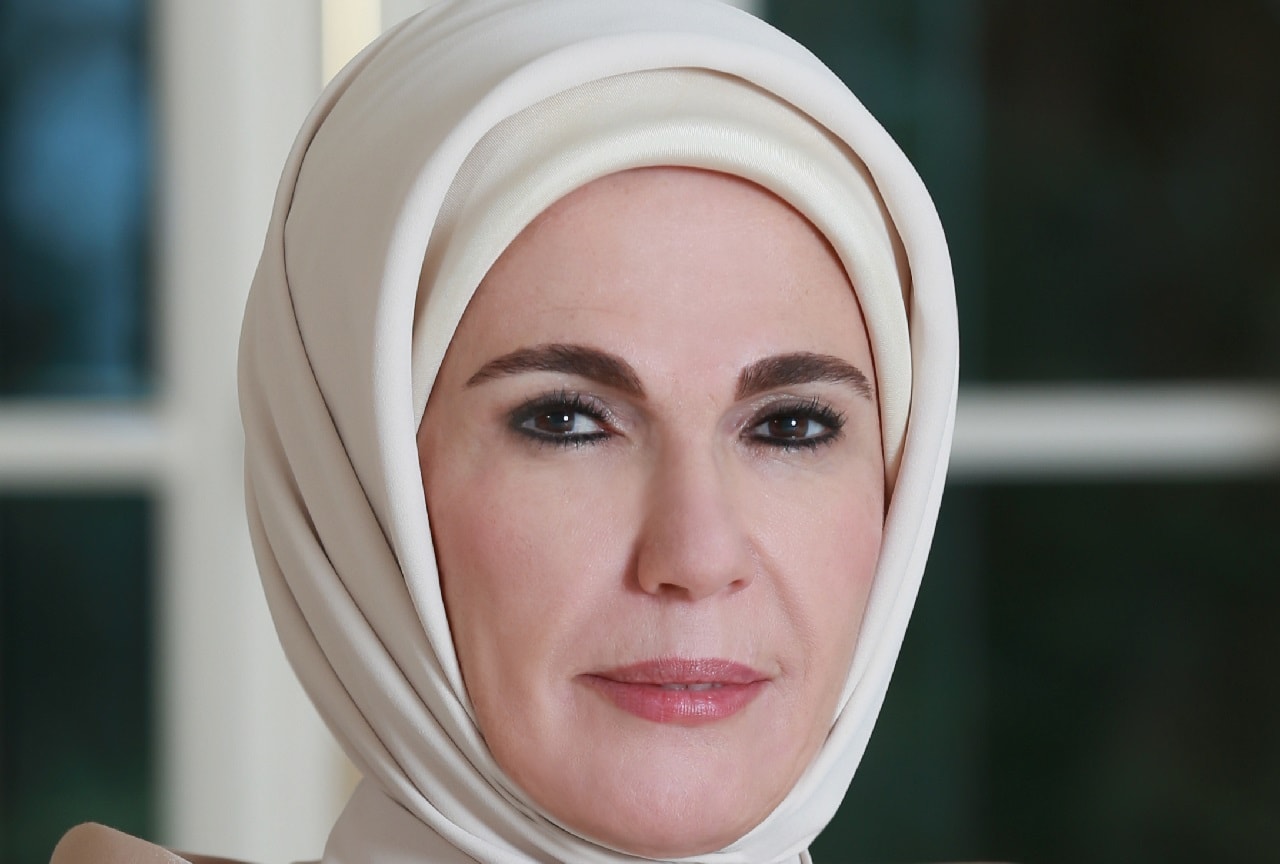Emine Erdogan: The New Imelda Marcos? On February 25, 1986, longtime Filipino President Ferdinand Marcos boarded a U.S. Air Force C-130 and fled his country for exile in Hawaii. Onboard was his wife and longtime partner in crime Imelda Marcos, and nearly a billion dollars in cash and luxury goods. Not everything would fit on the airplane, however. Soon, photos emerged of Imelda’s profligate lifestyle amidst the poverty her husband’s mismanagement left.
Today, Emine Erdogan—wife of Turkey President Recep Tayyip Erdogan—is shaping up to be the 21st century Imelda.
Twenty years ago, Erdogan rose to power largely on his promise of clean government. This was always an illusion. As mayor of Istanbul, Erdogan accumulated tens of millions of dollars outside of his legal salary. At the time he took the premiership and received parliamentary immunity, he still faced more than a dozen outstanding corruption charges. Today, there is no question that Erdogan transformed Turkey into a kleptocracy. Transparency International ranks Turkey below China, Cuba, and Kosovo in its most recent perceptions of corruption global survey.
Corruption, Inc.
Corruption in Turkey reportedly centers around Erdogan’s household. Shortly after Erdogan fell out with one-time ally and theologian Fethullah Gülen, members of Gülen’s movement allegedly leaked an audiotape of a series of phone calls between Erdogan and his son in which the two conspired to hide $1 billion in cash hidden in family homes. While Erdogan subsequently claimed his enemies fabricated the audio, intelligence services outside Turkey assess it to be authentic.
The corruption does not end there. More recently, $128 billion disappeared on Erdogan’s watch, allegedly used to shore up Turkey’s collapsing currency.
Today, Erdogan has become the snowflake president. Anyone who asks pointed questions or punctures his self-image as Turkey’s savior faces years in prison. Such intolerance toward those who point out his apparent thievery suggests he has some sense of shame. Like Imelda Marcos, though, his wife Emine has none.
Mrs. Erdogan Has No Boundaries
Consider her five-hour shopping spree in some of Brussels’ fanciest luxury stores, which caused gridlock as her security detail caused traffic jams on some of the Belgian capital’s main thoroughfares. That shopping trip came as Turkey’s currency accelerated its fall amidst the economy’s declining growth. When she accompanied her husband to Warsaw, she managed to blow through $44,000 while antique shopping when Tayyip had an official meeting. Her husband’s official salary is just over $5,000 per month (Forbes estimates his actual earnings to be closer to $50 million). None of this should surprise anyone. The United Kingdom’s Daily Mail described Emine as a “shopaholic.”
Her behavior in Brussels and Warsaw was more the rule than the exception. Turkey has a tea culture. For most Turks, this means a few lira at the teahouse or, at most a couple of lira a day. Emine, however, despite describing herself as frugal, brags about her fondness for a type of white tea that costs more than $800 per pound that she then drinks from gold-plated glasses, each of which costs the equivalent of an average Turks’ monthly salary. Meanwhile, the Erdogans throw cheap teabags from their motorcade as they speed through the countryside or inspect disaster areas.
Emine personifies the Erdogans’ cynical hypocrisy. Shortly after her husband called for a boycott of French goods after a French teacher had allegedly shown his students a caricature of the Prophet Muhammad, a photographer snapped a photo of Emine carrying a French Hermes handbag that retails for about $50,000. Compounding the sin was the fact that she allegedly received the handbag and other goods as part of Reza Zarrab’s bribery scheme. In two weeks, the U.S. Supreme Court will hear an extension of the Zarrab-Halkbank case examining the reach of the Foreign Sovereign Immunities Act. Whatever the outcome of that case, Emine is already laughing her way to the bank.
Making her behavior worse is her insincerity. Meeting with mufti and preachers at the multibillion-dollar presidential palace Erdogan built, within the Turkish media bubble, however, she declared, “From avoiding waste, living in moderation, from eating and drinking to using natural resources, Islam draws the boundaries of a sustainable life for us.”
Erdogan built his image upon Islam. He promised “to raise a pious generation.” In reality, as with the ayatollahs in Iran and the Shi’ite religious parties in Iraq, he has besmirched Islam to a new generation by associating it with corruption.
When Erdogan goes, Turks will celebrate. The families of those whom he has killed, tortured, or extorted will curse his name. As Turkey turns to rebuild its country, however, it will be essential to recover all ill-gotten money. Like Imelda, Emine may flee. But like Imelda, the new government should not let her keep her cash and plunder. The Philippines pursued the Marcos fortune and won the return of several billion dollars. When it comes to Emine, the post-Erdogan Turkish government should do likewise. Perhaps only then will Emine or any Erdogan learn what frugality truly is.
Now a 1945 Contributing Editor, Dr. Michael Rubin is a Senior Fellow at the American Enterprise Institute (AEI). Dr. Rubin is the author, coauthor, and coeditor of several books exploring diplomacy, Iranian history, Arab culture, Kurdish studies, and Shi’ite politics, including “Seven Pillars: What Really Causes Instability in the Middle East?” (AEI Press, 2019); “Kurdistan Rising” (AEI Press, 2016); “Dancing with the Devil: The Perils of Engaging Rogue Regimes” (Encounter Books, 2014); and “Eternal Iran: Continuity and Chaos” (Palgrave, 2005).

